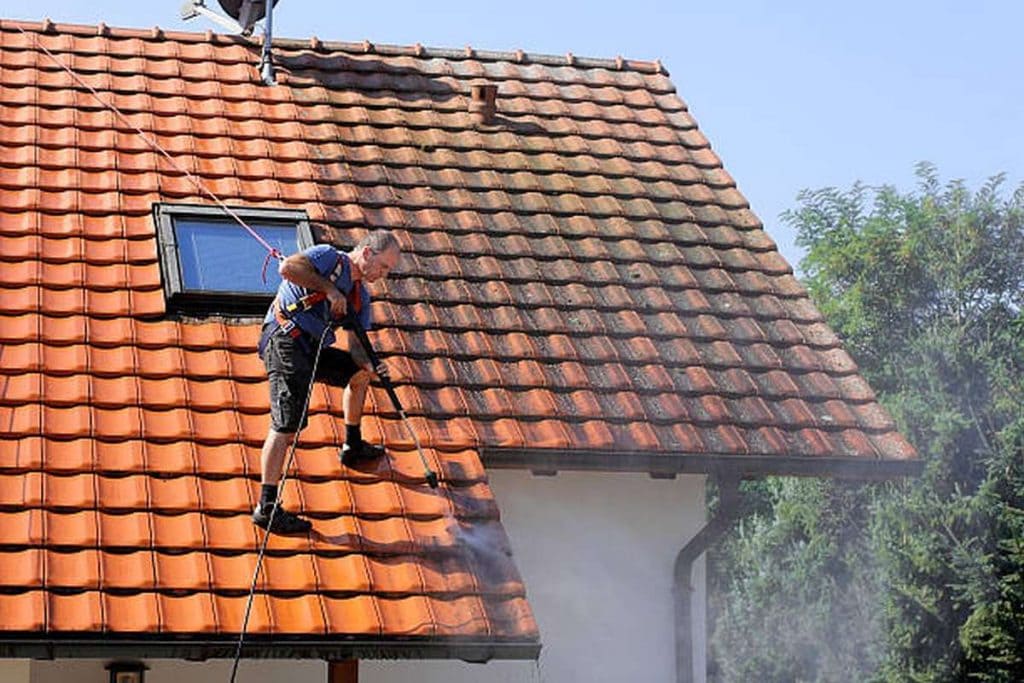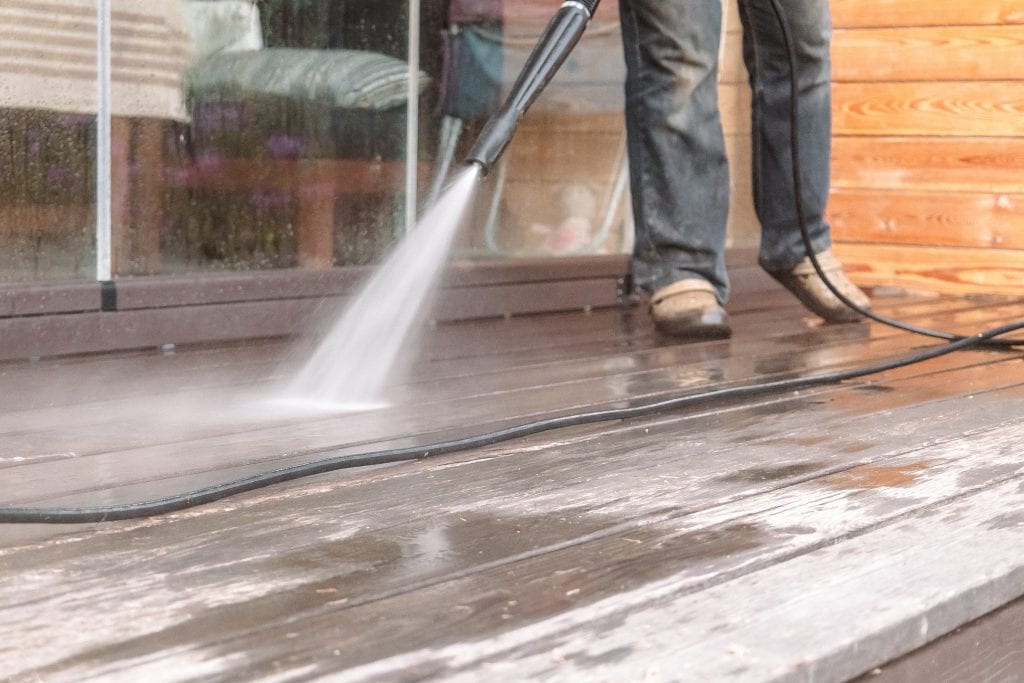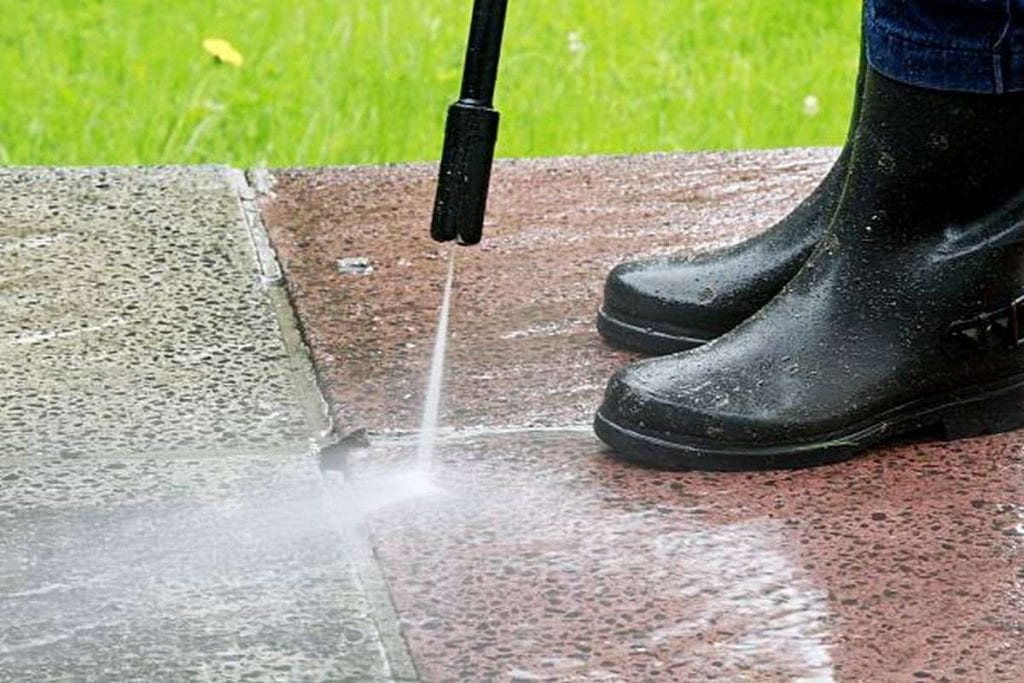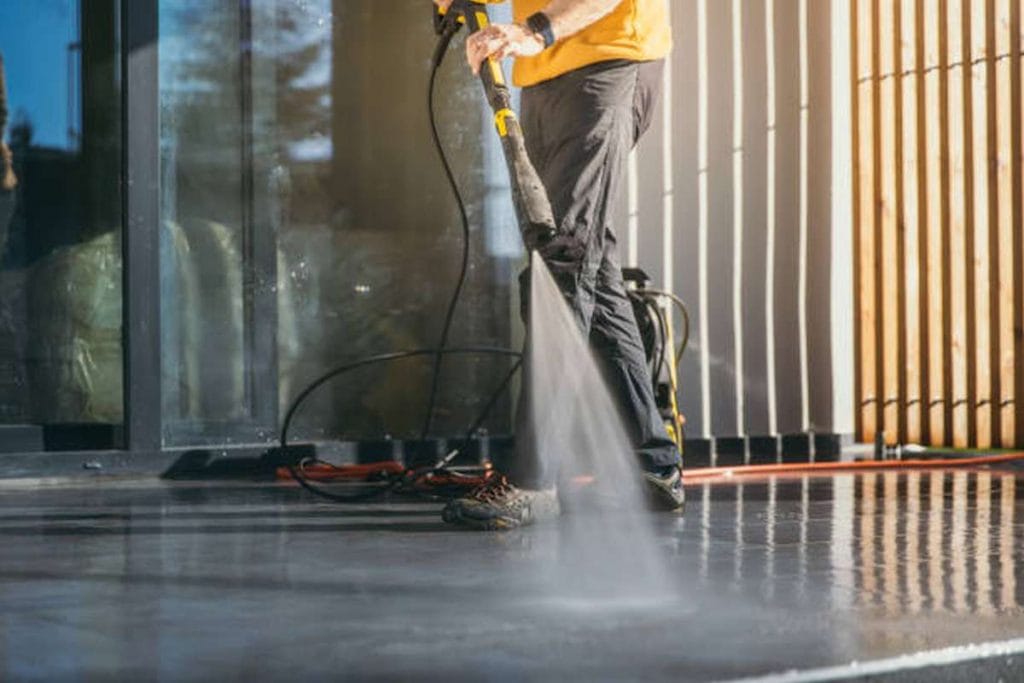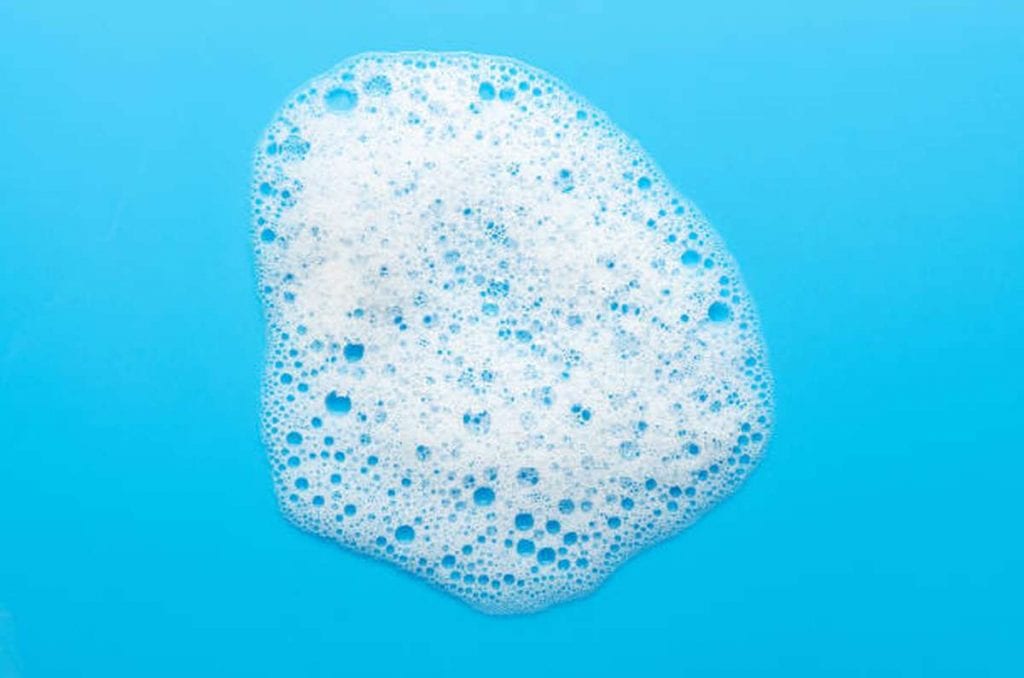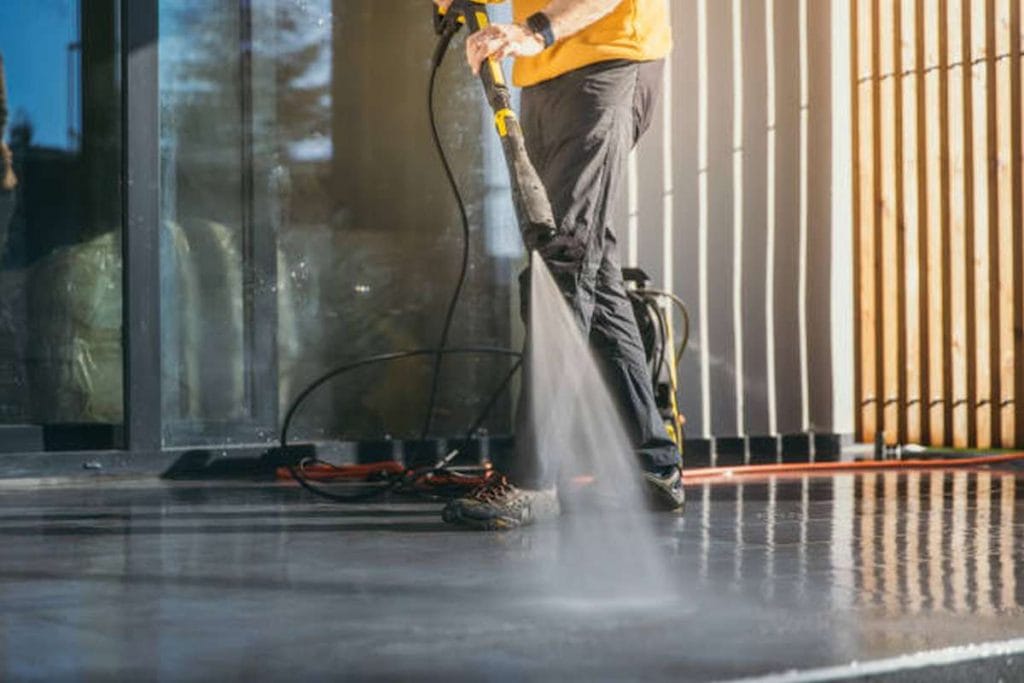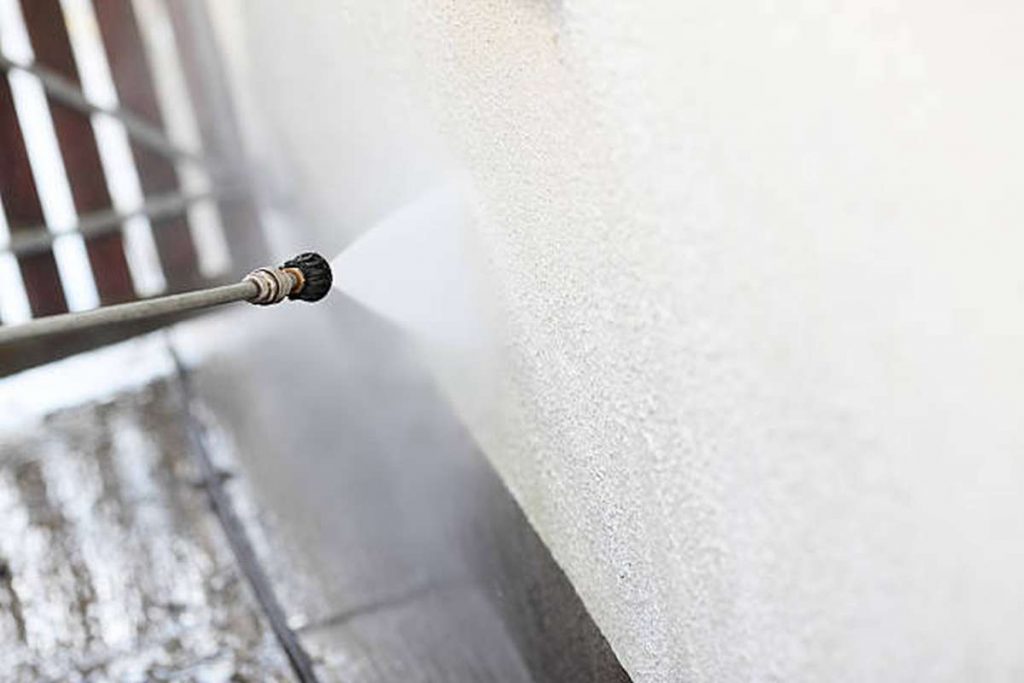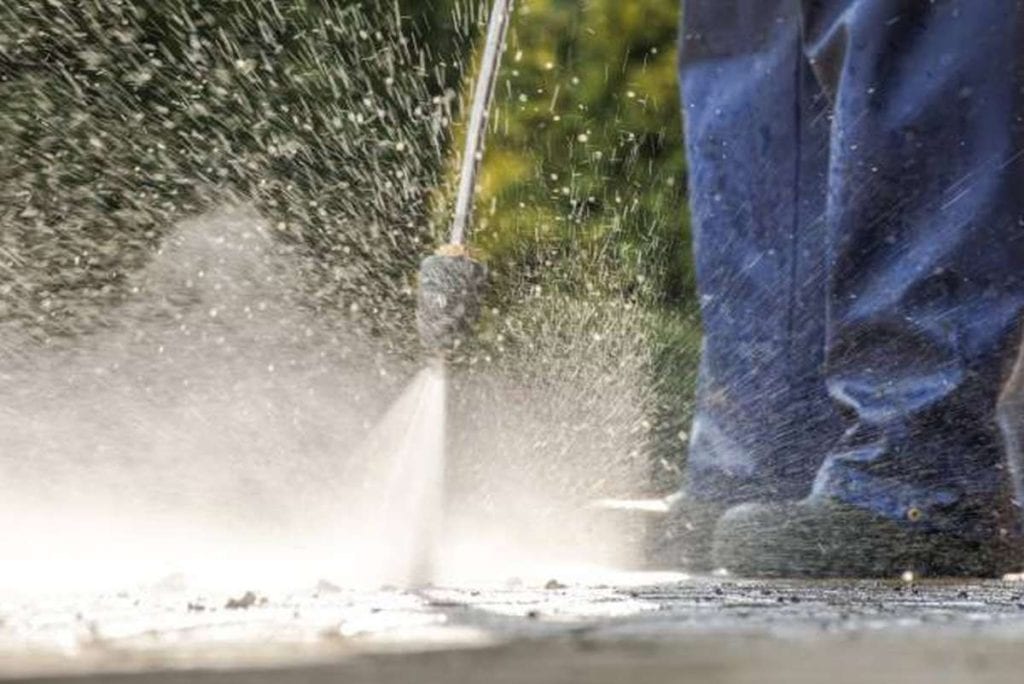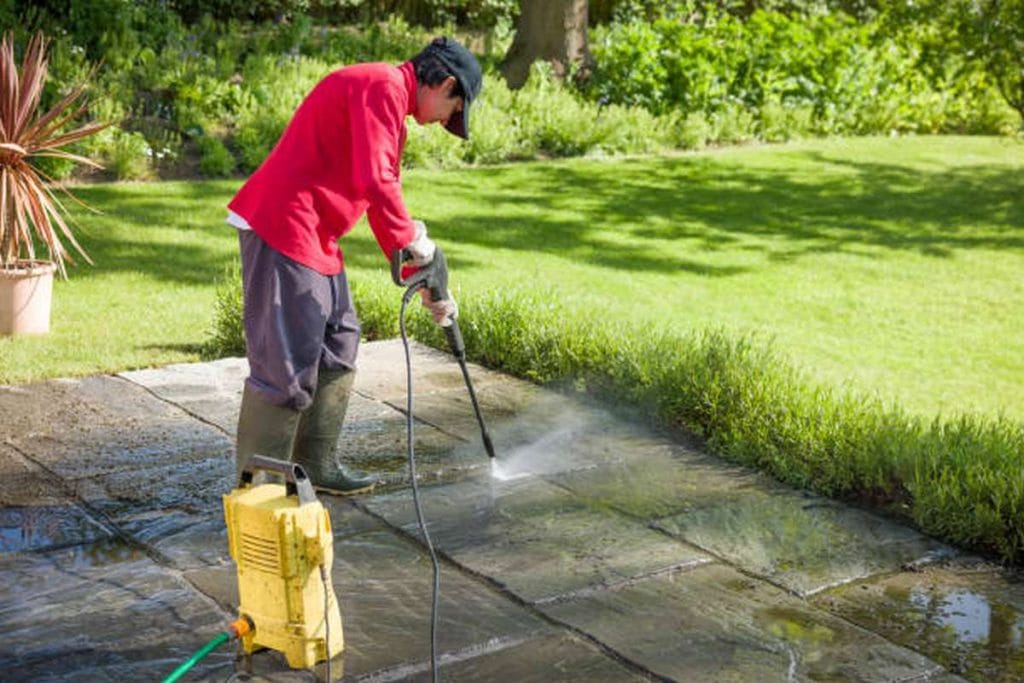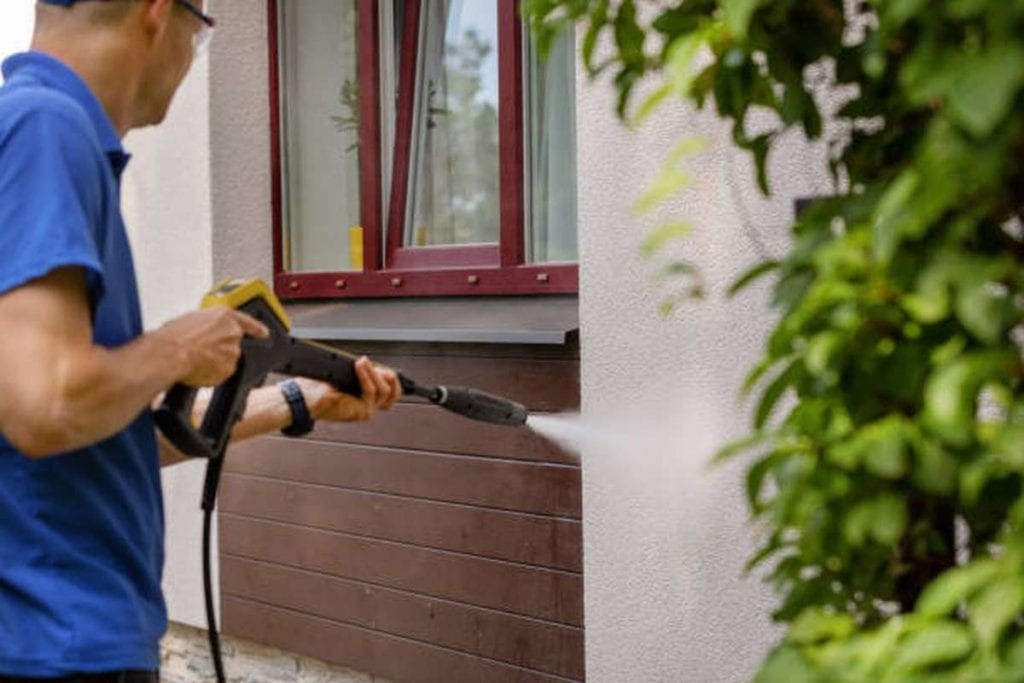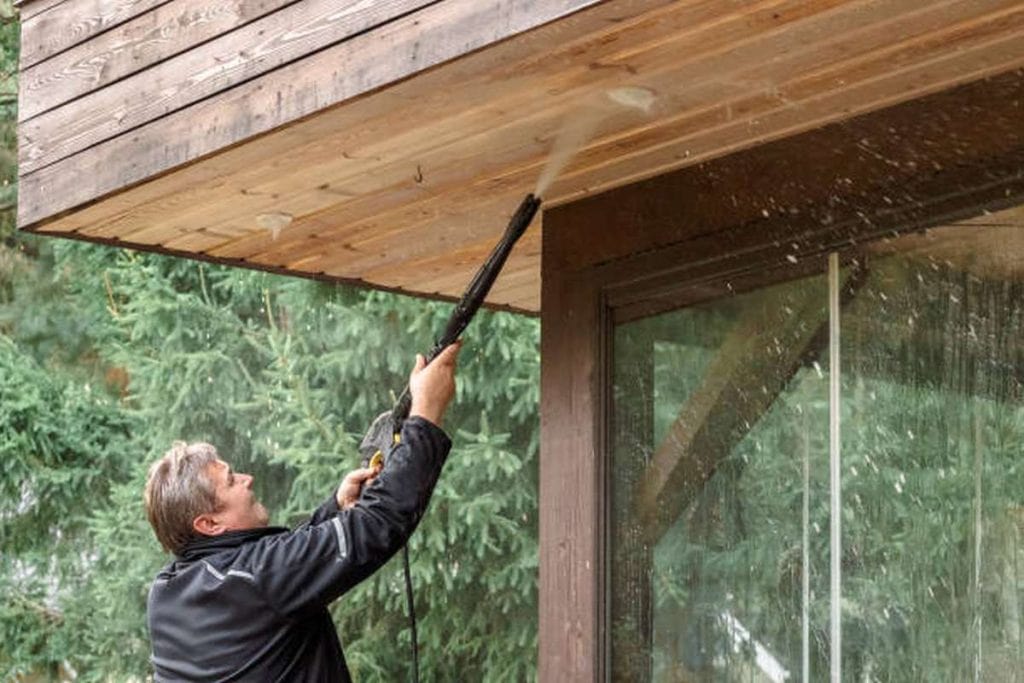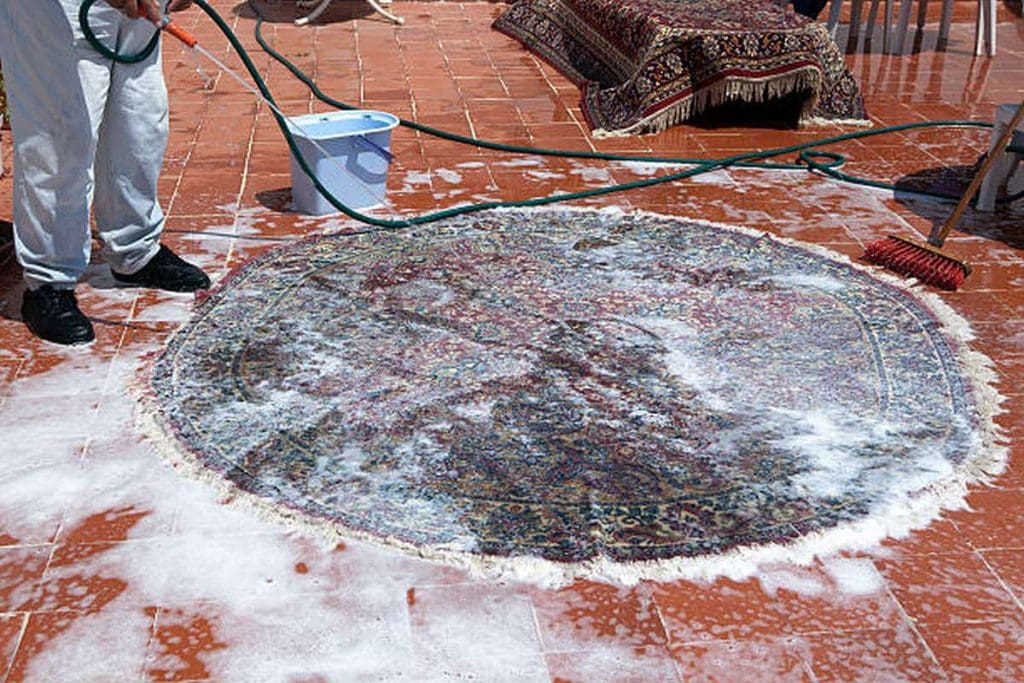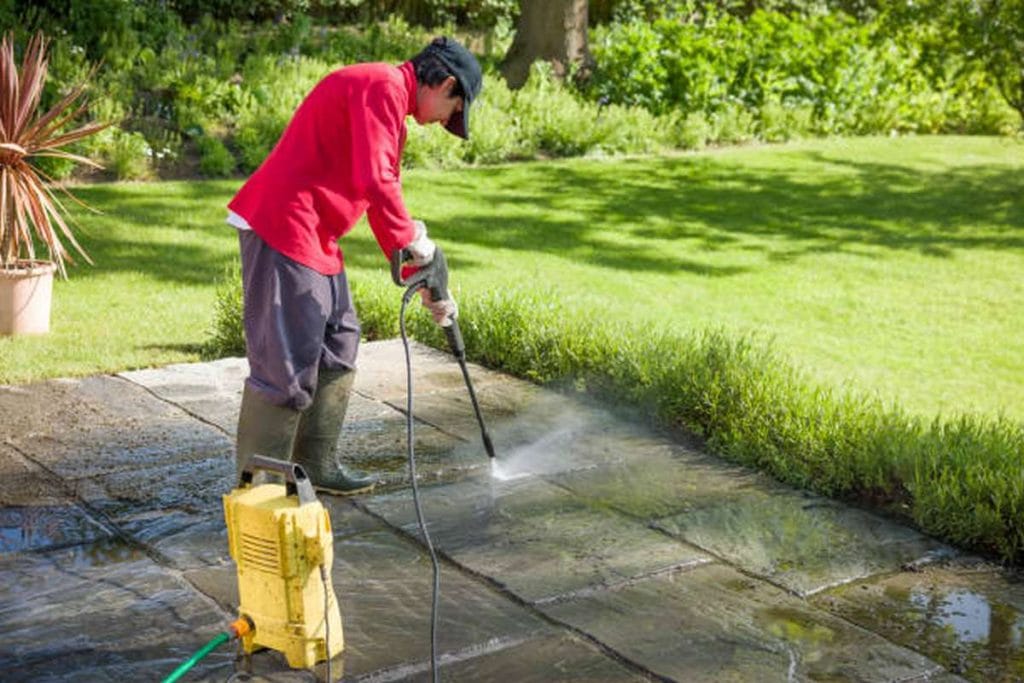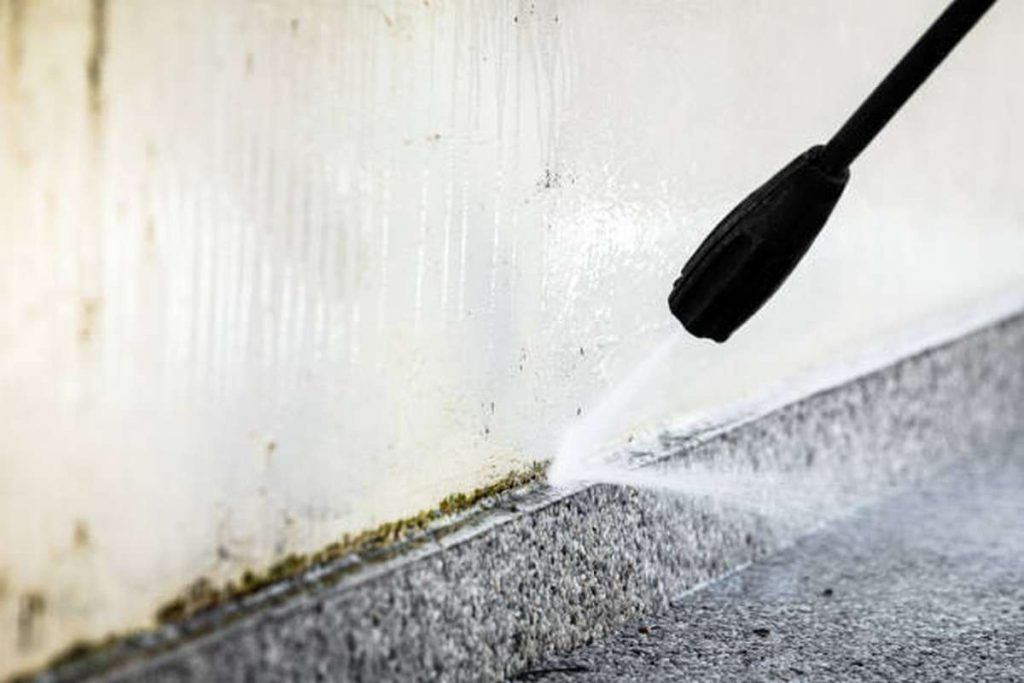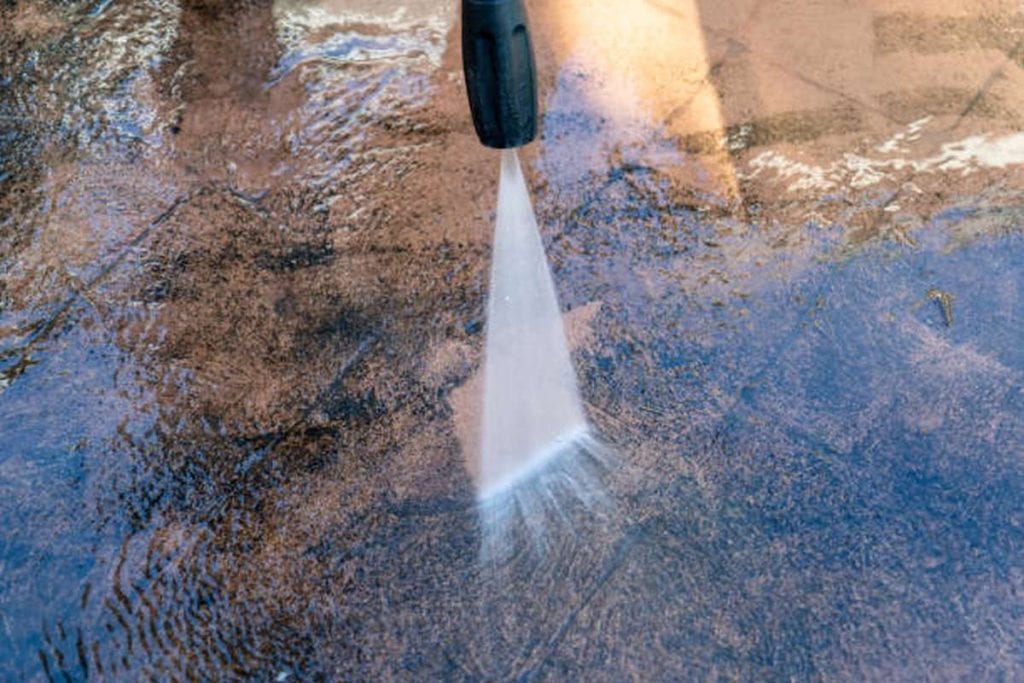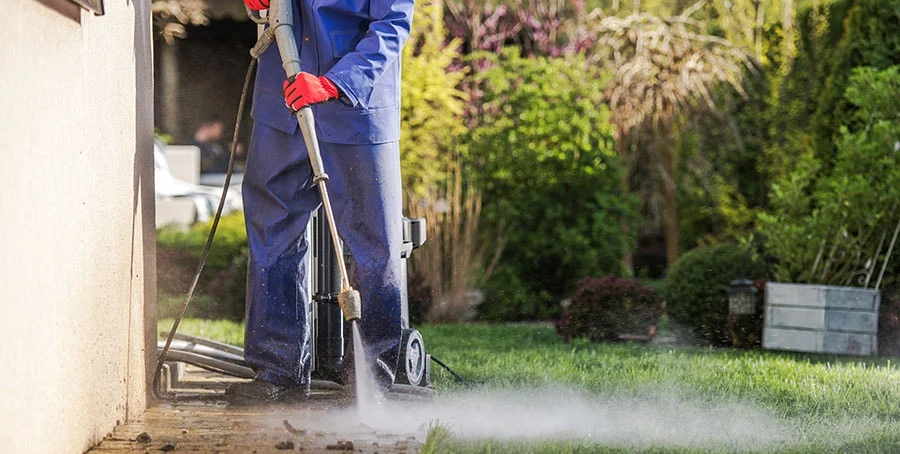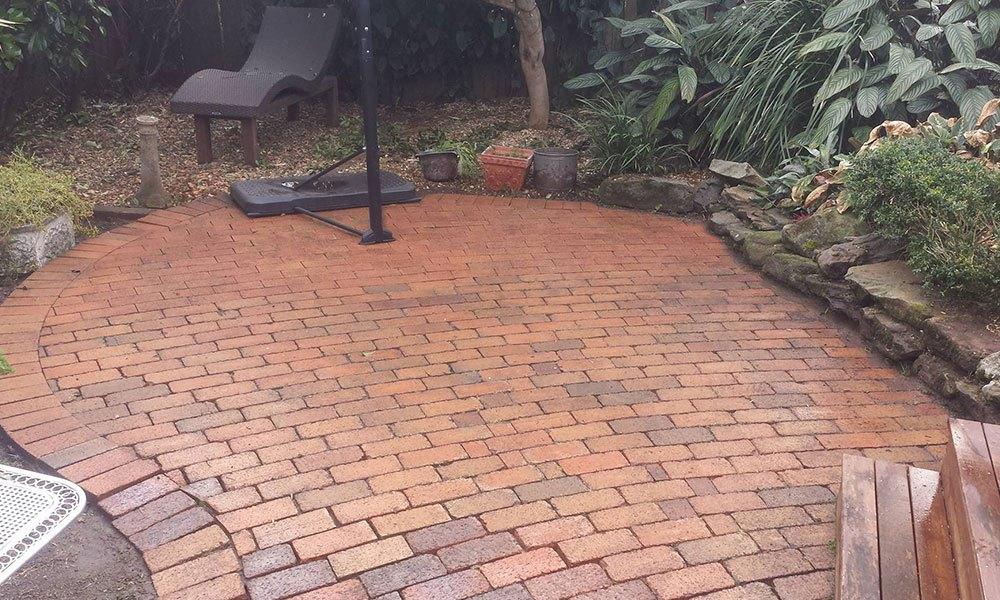Are you considering pressure washing to clean your outdoor surfaces, such as driveways and patios? Before you take the plunge, it's important to understand what risks are involved with this powerful cleaning method. In this blog post, we'll explore the potential dangers associated with pressure washing, and provide helpful advice on how to tackle these issues should they arise. Whether you're a seasoned pressure washer or just getting started with this method of cleaning, there's sure to be something here for everyone. So read on to learn more about the potentially hazardous side of power washing so that you can get back outside safely!
Problems Associated With High-Pressure Washing
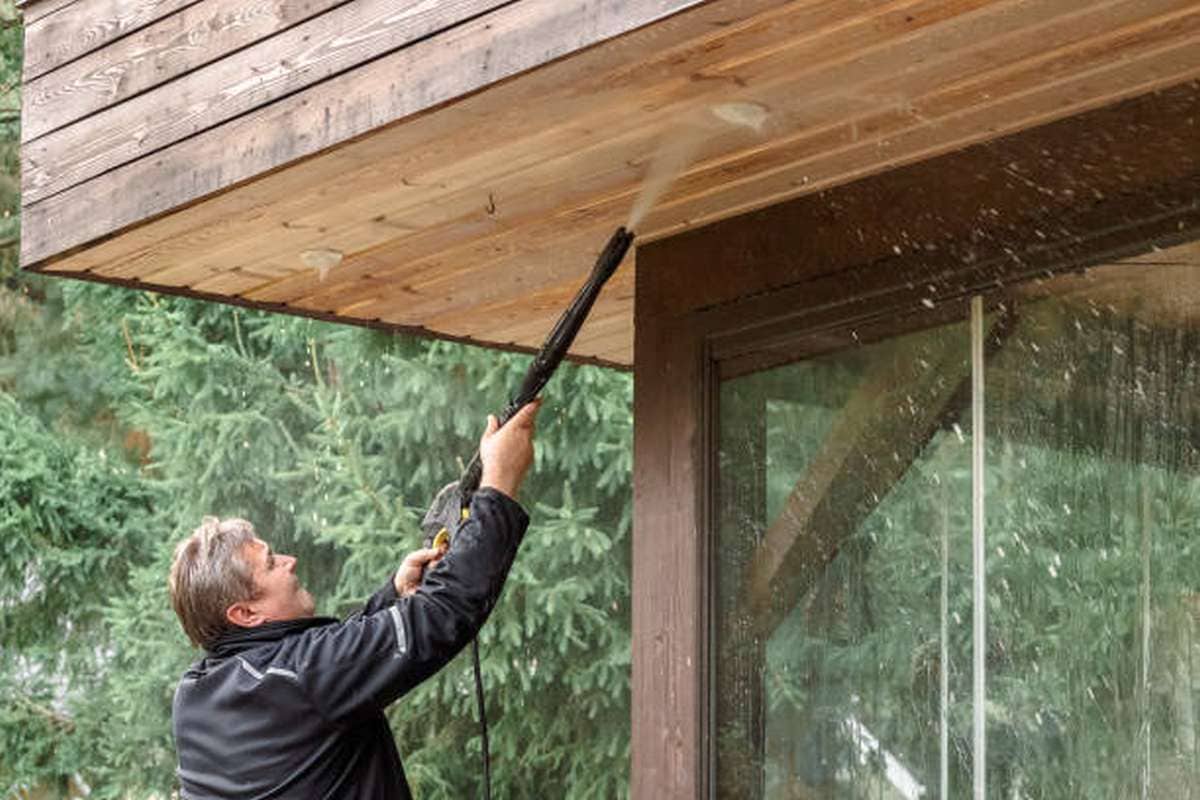
The Possibility Of Suffering A Physical Injury
Most individuals grossly underrated a pressure washer's effectiveness. However, the device's water pressure is higher than that of a standard garden hose. When subjected to such force, the feet and hands are in danger of severe damage.
Also, it can easily slice through a pair of steel-toed boots. But the strain makes it difficult to steer the hose. This raises the possibility of an injury-inducing runway hose. Also, the pressure of the spray bottle can rip your skin and muscle away from your bones.
Abrasions, blindness, high-pressure injections, and falls are the more common injuries associated with pressure washers. Water can cause serious harm simply due to its pressure. In addition, the use of chemicals in cleaning can exacerbate existing problems. Injuries with a power washer may seem minor at first glance. However, they require a medical evaluation and subsequent treatment. In addition, pressure washing is commonly linked to skin abrasions. Protect yourself from harm by donning safety gear like gloves and boots.
Possibility Of Severe Electric Shock
Extra care must be used while utilising a pressure washer powered by electricity. For example, you might easily give yourself an electric shock using an electric pressure washer.
Never risk electrical problems by not using a grounded outlet when plugging in your pressure washer. It is important to keep the pressure washer grounded at all times.
The extension cord you use must be suitable for use in damp environments. The extension cord must be kept out of any pools of water.
Wearing rubber-soled shoes can provide an additional layer of insulation while using a pressure washer.
Using a pressure washer is risky since water and electricity must be combined. These devices also have power lines, which increases their vulnerability to damage. If water gets into the wires when working with water, it could create an electrical shock or even a fire. A grounded power source is recommended for the same reason.
Affecting Surfaces With Destruction
An attractive hardscape can greatly enhance the visual appeal of your outdoor space. In addition to helping you save water, this method provides a solid ground on which to park and have parties. Generally speaking, hardscapes are well-known due to their durability and lifespan. With this, you may make use of convenient paths and sidewalks. Hardscapes are typically made out of artificial materials like bricks or stone.
The pressure washer can clean these areas when they become unclean. Pressure washing is a highly effective cleaning method. Therefore, it is an extremely useful tool for cleaning. As a result, your hardscape, as well as other surfaces, may be damaged by the pressure. Getting too close to the hose might ruin paint and wood. The paint can fade and chip off. Pressure washing can readily strip away any lead paint that may be present on the surface. It's important to remember that the hose from your pressure washer, if not positioned properly, could end up underneath, causing damage to the insulation and wiring.
The Effects Of Chemical Exposition
Your dirty landscapes will require a pressure washer to clean. Therefore, it would be wise to hire a person with extensive cleaning expertise. This is a foolproof method of protecting against harm and the associated costs of fixing any problems that may arise.
If hiring one is out of your price range, you can save money by buying a pressure washer and following the instructions provided with it. On the other hand, power washing entails sanitising a wide variety of cleaners. These compounds may be harmful if they find their way into a cut, abrasion, or wound and begin to seep in. Because of the potential for the chemicals to enter the bloodstream, they can also cause various bacterial illnesses.
Objects In Flight
Using high-pressure water jets can launch dust and other particles into the air. Debris might fly into your face if you used a power washer on it at the wrong angle.
Pressure washers have a powerful spray that can fling anything about. It could cause harm to you or those nearby.
Every year, people lose their eyesight because they are careless with a pressure washer. If they use a power washer on a surface containing pebbles, they could cause lasting damage to their eyes.
While pressure washing a surface, it's important to protect your eyes, especially when manoeuvring in confined spaces.
Make sure there are no animals or persons in the vicinity. Only subject others to high-pressure water jets if they are equipped to handle them.
Taking Aim At Your Roof's Shingles
For example, pressure cleaning may cause damage to older windows or roofing. Because of the nature of the materials utilised in the design, some shingles will need to be improved in many respects. Your home or business can benefit from an inspection from a pressure washing expert before you invest. Ask them if buying a pressure washer is a good idea and they'll tell you.
Skin Damage Is Possible
High-pressure water is released from the washer. Even what looks like a minor nick could do significant damage. The machine's chemicals are quickly absorbed into the body through the veins. An infection caused by bacteria is a possible consequence.
Loss Of Property
It's shockingly simple to wreck your house and other valuables with a power washer.
Cleaning your siding and roof with a pressure washer is more complex than pointing and spraying.
Cleaning surfaces like siding and roofs require a combination of high pressure and the application of specialised cleaning solutions, both of which can only be handled by trained specialists.
If this is your first time using a pressure washer, you might be eager to put it to good use around the house. However, please exercise extreme caution while cleaning home siding, roof, or other surfaces. It's simple to do irreparable harm to your possessions.
Injury To Third-Party Property
In addition to causing damage to your roof and siding, an improperly used pressure washer can also ruin your car by removing the paint.
Every first-time homeowner has considered giving their car a quick pressure wash. As you scrub the driveway, you remember that your automobile is as unclean. You believe it to be secure. Vehicles can usually withstand pressure washing without damage, although improper use can cause paint to peel.
Cars with chips are especially vulnerable to damage during pressure cleaning. In addition, these chips can be exacerbated by pressure washing, increasing the likelihood of corrosion.
Precautions
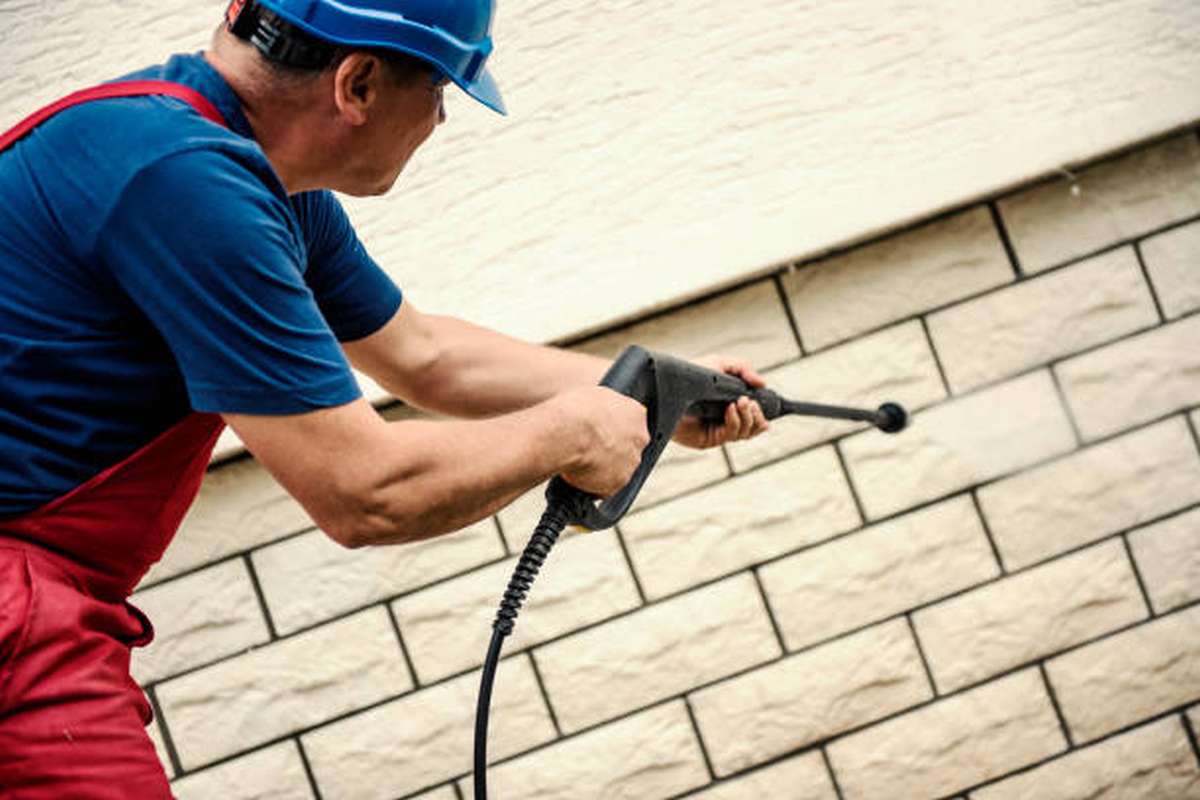
- It would help if you never aimed a pressure washer at somebody, including yourself.
- Spray from a washer should never be used to push and move anything.
- It would help if you never used a washer powered by gasoline inside any closed area.
- Before utilising a pressure washer, be sure the GFCI (circuit breaker or outlet) has passed testing.
- When using a pressure washer, only plug it into a grounded outlet.
- If you must use an extension cord, keep the power cable connection on the pressure washer above any standing water and use a durable cord with parts that are safe to use in damp environments. Keep the plugs for the power source and the extension cord away from the cleaned object and the water drain.
- When operating a pressure washer, it is recommended that you put on some rubber-soled shoes that will provide some insulation.
- The power cord and any extension cords should never be cut or spliced.
- The pressure washer's power cable plug and the grounding prong on any extension cord must always be in place.
- After the pressure washer has tripped the circuit breaker, it is always best to have a professional electrician inspect it for potential electrical problems.
- Never give a child the keys to a pressure washer. When an adult uses a pressure washer, ensure kids are far away.
In Case Of Pressure Washer-Related Injury:
- Need immediate assistance? Dial 911 immediately.
- Treat any injuries you may have:
- First, clean your hands thoroughly with soap and water before treating the wound.
- Take away whatever is stopping you from tending to the wound.
- Stop the bleeding by applying pressure with a clean towel over the cut.
- When the bleeding has stopped, flush the wound with clean water from a bottle or tap.
- Use soap & clean water to wash the area around the wound gently.
- After drying the wound thoroughly, wrap it with a dry, clean bandage or cloth and adhesive tape.
- Don't bother closing up dirty cuts.
- People who have been injured by high-pressure spray should seek immediate medical assistance. A doctor would order an X-ray, give you an injection of tetanus and antibiotics, or recommend seeing a specialist.
Conclusion
Most injuries sustained while using a pressure washer involve cuts, loss of vision, high-pressure injections, and falls. Quite simply, the pressure of water can be extremely harmful. Wear protective clothing, such as gloves and boots, to avoid injury. If the pressure washer is electrically operated, extra caution should be exercised when using it. Damage to finishes and wood from getting too close to the hose is possible.
Lead paint is easily removed by a pressure washing. Make sure to shield your eyes when working in tight quarters. Using a power washer at an incorrect angle might cause debris to fly in the wrong direction, perhaps hitting you in the face. Please take extra caution around the home or business if this is your first time purchasing and using a pressure washer. Older windows or roofing may be harmed by pressure cleaning, and the process could be harmful to the skin and even create an illness.
Before you commit to having your home or business pressure washed, it's a good idea to have an inspection from a professional. One should never utilise the spray from a pressure washer to propel anything, including oneself. Never trust a child with the keys, and keep kids out of the way when adults are using one. The plug and grounding prong of the extension cord for the pressure washer's power cable must always be in place. Seek medical attention if you've been hurt by high-pressure spray.
Content Summary
- Injuries to body parts are always a risk. The majority of people severely underestimate a pressure washer's usefulness.
- The water pressure, however, is far greater than that of a regular garden hose.
- The feet and hands are especially vulnerable to injury under such conditions.
- However, it is difficult to control the hose due to the pressure.
- One might be hurt by a hose on the runway if this happens.
- The force of the spray bottle may also tear flesh and muscle from the skeleton.
- Most injuries sustained when using a pressure washer include cuts, loss of vision, high-pressure injections, and falls.
- Quite simply, the pressure of water may be quite harmful.
- Cleaning with chemicals might also cause health issues.
- At first sight, power washer-related injuries may seem to be mild.
- However, they need to be checked out by a doctor and treated accordingly.
- Furthermore, pressure washing has been connected to several cases of skin abrasions.
- Wear protective clothing, such as gloves and boots, to avoid injury.
- Potential for Severe Electric Shock If the pressure washer is electrically operated, more caution should be used while using it.
- While using an electric pressure washer, for instance, it is easy to shock oneself.
- Never put yourself at danger by utilising an ungrounded socket to power your pressure washer.
- The pressure washer must always be connected to the ground.
- It's imperative that the extension cable you choose can withstand wet conditions.
- If there are any puddles where the cable might become wet, you should avoid using the extension.
- Protect your feet from the pressure washer by donning a pair of rubber-soled shoes.
- Due to the need to combine water and electricity, using a pressure washer is inherently dangerous.
- The electrical wires on these gadgets also make them more susceptible to destruction.
- Working with water poses the risk of electrical shock or even fire if water gets into the wires.
- For the same reason, it's best to plug into a grounded outlet.
- With some careful planning and design, you can make your outside area seem like a million dollars with a beautiful hardscape.
- When these spots become dirty, a blast from the pressure washer is all that's needed to restore their pristine condition.
- In comparison to other cleaning methods, pressure washing is quite efficient.
- Cleansing is made much easier as a result.
- Therefore, the pressure might cause harm to your hardscape and other surfaces.
- Damage to finishes and wood from getting too near to the hose is possible.
- Paint may flake and deteriorate over time.
- Lead paint is easily removed by a pressure washing.
- Keep in mind that if the hose from your pressure washer is not directed correctly, it might end up beneath, causing damage to the insulation and wiring.
- A pressure washer will be necessary to clean your soiled landscaping.
- The best course of action, therefore, is to look for a candidate with vast experience cleaning.
- This is an absolutely secure approach of preventing injury and the expenses that come with correcting any issues that may emerge.
- It is possible to save money by purchasing a pressure washer and using it in accordance with the manufacturer's instructions if renting one is out of your price range.
- Power washing, on the other hand, necessitates the use of several disinfectants.
- The chemicals may be absorbed into the body and then induce a wide variety of bacterial infections.
- Dust and other particles may be propelled into the air using high-pressure water jets.
- Using a power washer at an incorrect angle might cause debris to fly in the wrong direction, perhaps hitting you in the face.
- Any object may be flung about by a pressure washer's strong spray.
- You and anyone in the area might be in danger if you do that.
- Carelessness with a power washer causes annual blindness for dozens of individuals.
- They risk permanent eye injury if they use a power washer on a pebbled surface.
- Eye protection is essential when pressure cleaning any surface, but particularly so while working in tight quarters.
- Verify that there are no nearby pets or people.
- High-pressure water jets should only be used on those who can safely manage such treatment.
- Damage to older windows or roofs, for instance, might result from a pressure cleaning.
- Some shingles will need to be modified in various ways due to the nature of the materials used in the design.
- Before you commit to having your house or business pressure washed, it's a good idea to have an inspection from a professional.
- If you ask them, they will tell you whether or not investing in a pressure washer is wise.
- The washer shoots out a stream of water at a very high pressure.
- The ease with which a power washer may destroy your home and other assets is astonishing.
- Pressure washing your home's exterior is more involved than just aiming and spraying.
- It takes high pressure and the use of specialised cleaning chemicals to properly clean surfaces like siding and roofs, both of which should only be attempted by those with proper training.
- If you have never used a pressure washer before, you may be excited to put it to good use around the home.
- However, considerable care must be used while washing the outside of a house, the roof, or any other surface.
- Damage to your belongings may be easily done and often cannot be repaired.
- The thought of giving the automobile a fast pressure wash has crossed the mind of every first-time homeowner.
- You realise as you scour the driveway that your car is just as filthy.
- To your mind, it's a safe bet.
- Vehicles are normally safe from harm when subjected to pressure washing, however paint might flake if done incorrectly.
- There is a heightened risk of damage to vehicles with chips when using a power washer.
- Pressure cleaning may make these chips much worse, leading to even more corrosion.
- Never point a pressure washer at anybody, including yourself; doing so might cause serious injury.
- You should never utilise the spray from a washer to propel or move anything.
- It's recommended that you never use a gasoline-powered washer inside of a confined space.
- Make sure the GFCI (circuit breaker or outlet) has been verified as functioning properly before using a pressure washer.
- Always use a grounded outlet while using a pressure washer.
- Keep the power cable connection on the pressure washer high above any standing water if you must use an extension cord, and choose one that can withstand wet conditions.
- Remember to keep the power source and extension cable plugs away from the item being cleaned and the water drain.
- Wearing rubber-soled shoes that offer insulation is advised while running a pressure washer.
- You should never splice or cut the power cable or any extension cords.
- The grounding prong on the extension cord and the power cable plug on the pressure washer must both be plugged in at all times.
- Whenever the pressure washer trips the breaker, it's a good idea to have an electrician check it out to make sure there aren't any underlying electrical issues.
- Don't ever trust a kid with the pressure washer's keys.
- Keep children away from the pressure washer at all times.
- Please contact emergency services at once by calling 911.
- Tend to any wounds you may have: Before tending to a wound, wash your hands thoroughly with soap and water.
- Eradicate the obstacles preventing you from treating the injury.
- Apply pressure with a clean cloth over the wound to stop the bleeding.
- As soon as you see that the bleeding has stopped, flush the wound with clean water from a bottle or the faucet.
- Wash the area surrounding the wound carefully with soap and running water.
- Wrap the wound in a clean, dry bandage or cloth and secure it with adhesive tape.
- It's hardly worth your time to bandage up injuries in an unclean room.
- A person harmed by high-pressure spray should get medical attention right away.
- A doctor may suggest an X-ray, prescribe antibiotics and tetanus shots, or that you consult a specialist.
FAQs About Pressure Washing
Many pressure problems begin and end at the unloader. A cracked o-ring, dirt caught in the spring or a stuck shaft are the most common issues solved by simply removing the unloader and cleaning/looking for issues.
Use the Safety Latch When Not Spraying
Never place your gun down without engaging this safety latch. And never leave your pressure washer unattended while running. If you have to walk away for more than a minute, turn the pressure washer off.
Your house is built to withstand rain and other moisture, and it can even withstand a low PSI with a pressure washer, but when pressure washers are used at full capacity, you may end up with soggy carpet, wet attics, and mold. When done incorrectly, a pressure washer can damage siding, even knocking it loose.
Pre-washing with the right detergent helps to begin breaking down the algae, rust, dirt, or oil stain before pressure is even applied. Pressure washing without detergent is like showering without soap. Sure, water and scrubbing will get the job done, but it's not the same without soap!
Although concrete can gather dirt and debris quickly, it isn't recommended that you pressure wash any of the areas of your home or office's exterior too frequently. Doing it too much can weaken your concrete and make it more likely that pressure washing will lead to cracks and damage.

